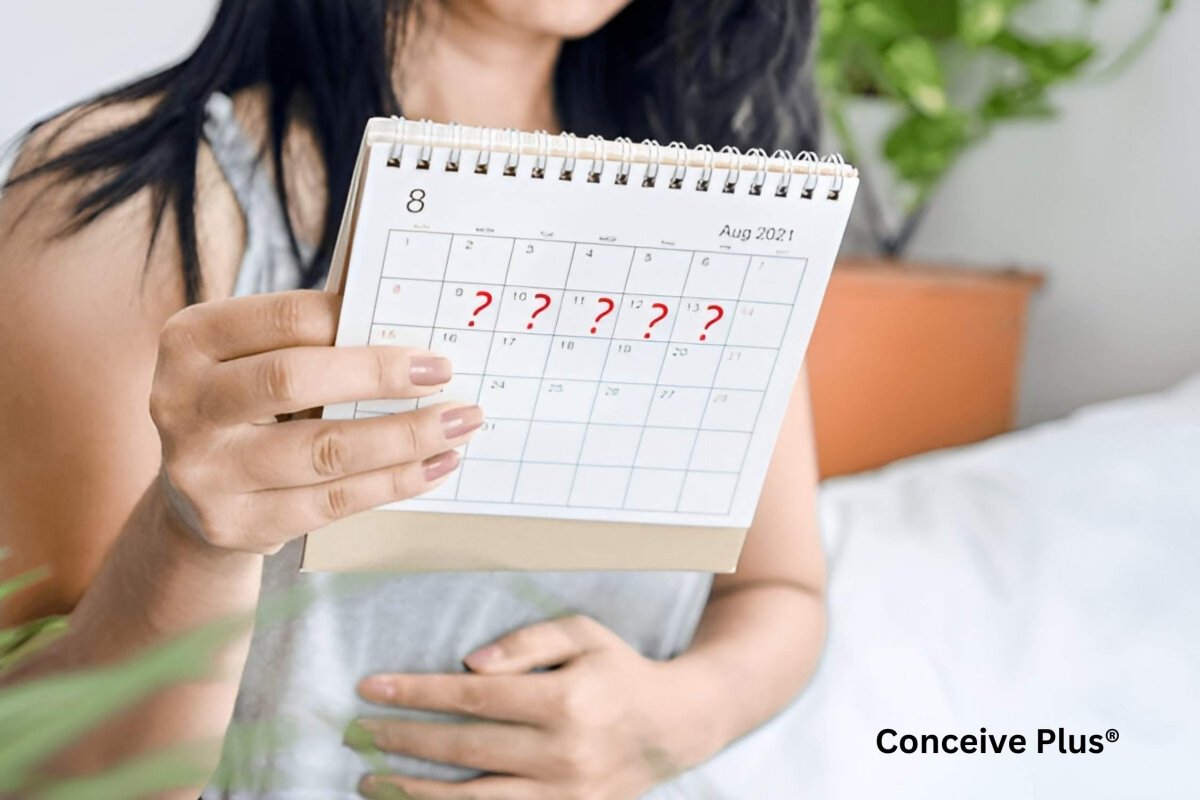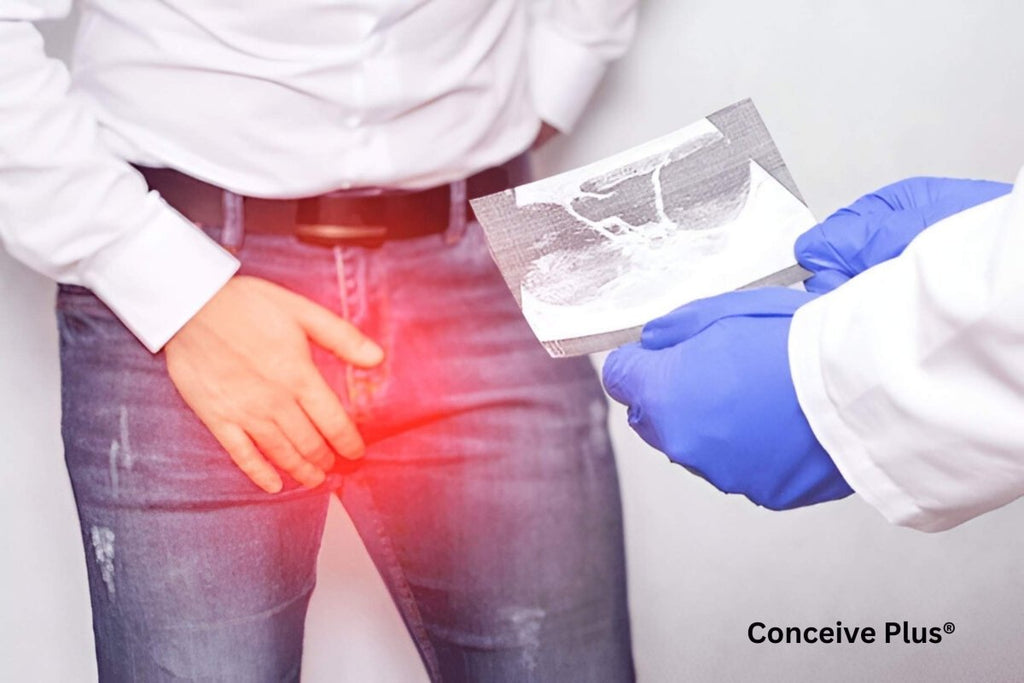Bleeding During Implantation vs Menstruation: What’s the Difference?

When trying to conceive, a show of blood often causes disappointment, but it can also be a sign that you’re pregnant. About a third of women experience implantation bleeding, which is when a fertilized egg embeds into the uterus lining to develop into an embryo and eventually a fetus. Understanding the key differences between implantation vs menstruation bleeding can provide clarity during this critical time, helping women better recognize early pregnancy signs versus their usual menstrual cycle.
Learning the differences between implantation and menstrual bleeding can help you to identify early pregnancy. Read on to learn how they differ in timing, how long the bleeding lasts, and the type of bleeding that occurs with each.
Implantation Bleeding: What is It?
When an egg is fertilized it becomes a zygote and travels down the fallopian tube to the uterus where it hangs around for a few days, becomes a blastocyst, and implants in the endometrium (uterine lining) for support and nourishment.
The implantation process involves the blastocyst embedding itself into the uterine lining, which can damage blood vessels in the endometrium and cause implantation bleeding. [1]
When Does Implantation Bleeding Occur?
Ovulation typically happens mid-cycle about 10-16 days after menstruation. If an egg is fertilized during ovulation, implantation occurs 10-14 days afterward.
With a regular 28-day cycle, implantation therefore takes place between days 20-26, which is quite close to when women might be expecting their period. [2]
When Does Menstruation Happen?
For women with a regular 28-day cycle menstruation typically occurs on or around day 28.
However, according to the Office on Women’s Health, a 21-38 day cycle is also considered regular. [3] Women who experience cycles that last less than 21 days or more than 38 days have irregular cycles.
There is nothing wrong with having an irregular cycle, but it can take a little more effort to track it and pinpoint ovulation. When trying to conceive, women with irregular menstrual cycles often use ovulation calculators or ovulation symptoms to identify their fertile window. Additionally, fertility support supplements containing key nutrients may help regulate menstrual cycles and improve the chances of conception.
How to Tell the Difference Between Implantation Bleeding and Menstrual Blood?
Although it can be confusing to ascertain if you are experiencing implantation bleeding or menstruation, some obvious differences exist between both types of bleeding. These include amount, color, clots, and duration.[1]
Amount
Implantation bleeding typically resembles spotting in that it’s normally a light flow. So light in fact that many women only notice it when wiping after using the toilet. Implantation bleeding would not be enough, for instance, to fill a tampon or sanitary pad like menstrual bleeding.
Menstrual bleeding is typically heaviest in the first 1–2 days and although the flow lightens as menstruation progresses, it is rarely as light as implantation spotting.
Duration
Implantation bleeding normally lasts from a few hours to 1-3 days, whereas menstruation usually lasts 3-7 days. If bleeding is a heavy flow and lasts more than a few days it’s generally a period rather than implantation bleeding.
Color
Menstrual bleeding is typically a bright or dark red, while implantation bleeding is usually lighter in color, more like pink or rust.
Clots
With menstrual bleeding, it’s normal for some women to notice small blood clots. However, blood clots should never be present in implantation bleeding.
Why Does a Period Start Then Stop?
Menstrual irregularities are not uncommon and can be caused by hormone fluctuations, lifestyle changes, losing weight, medication, over-exercising, poor diet, or stress. Irregular menstruation can also be caused by underlying conditions such as; endometriosis or polycystic ovary syndrome PCOS. [4]
Due to irregular cycles, pelvic pain, and issues surrounding ovulation, conditions like endometriosis and PCOS are leading contributors to female infertility. However, inositol supplements and/or fertility medication have been making it easier for women with either condition to conceive.
My Period Started then Stopped Am I Pregnant?
You could be. If your bleeding was very light in flow and color (pink or rust as opposed to red) and only lasted for a few hours or 1-3 days, it may have been implantation bleeding instead of a short period. However, irregular periods are also a symptom of conditions like endometriosis and PCOS.
With a regular 28-day cycle, implantation bleeding usually occurs between days 20-26, while menstruation on a regular cycle would typically happen around day 28.
In addition to implantation bleeding between days 20 and 26, other signs of early pregnancy can help determine if you have conceived. These could include a missed period (soon after implantation bleeding), breast tenderness, fatigue, frequent urination, and morning sickness (at any time of the day). [5]
Implantation or Menstruation: How to Know for Sure?
If the amount, color, flow, and duration of vaginal bleeding do not help you to differentiate between implantation bleeding and menstruation, the only sure way to tell is to take a pregnancy test. Identifying whether the bleeding is implantation spotting or your last period before pregnancy can be crucial in recognizing early pregnancy signs. The American Pregnancy Association recommends waiting 3-7 days after the bleeding stops before taking a pregnancy test for accurate results. [1]
The Bottom Line
Although they can occur around the same time during a regular menstrual cycle, implantation vs menstruation bleeding differ in consistency, color, and duration. When trying to conceive, implantation spotting can be an early sign of pregnancy, but it’s best to wait 3-7 days after the bleeding stops to get an accurate result from a pregnancy test.
If you experience heavy vaginal bleeding around implantation or menstrual bleeding that lasts more than 8 days, contact your healthcare provider or OB/GYN for further evaluation.
References
- American Pregnancy Association - What is Implantation Bleeding - https://americanpregnancy.org/pregnancy-symptoms/what-is-implantation-bleeding/
- Mayo Clinic - Fertilization and Implantation - https://www.mayoclinic.org/healthy-lifestyle/pregnancy-week-by-week/multimedia/fertilization-and-implantation/img-20008656#
- Office on Women’s Health - Menstruation - https://www.womenshealth.gov/menstrual-cycle/your-menstrual-cycle
- Medical News Today - What Causes a Period to Start and Stop? https://www.medicalnewstoday.com/articles/326479
- Cleveland Clinic - Am I Pregnant? https://my.clevelandclinic.org/health/articles/9709-pregnancy-am-i-pregnant













